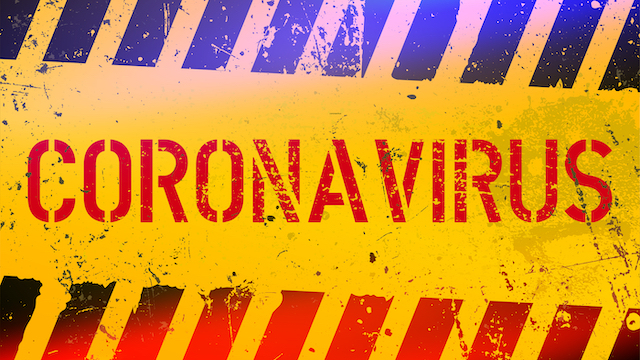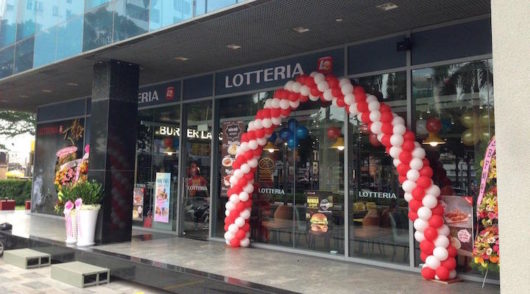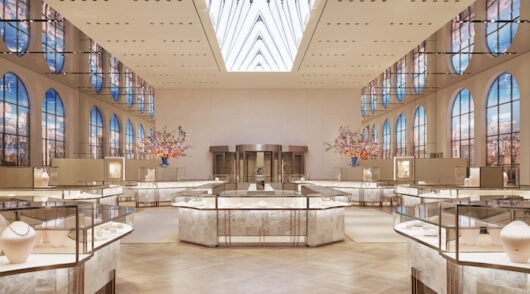As health authorities across Asia struggle to assess the severity and impact of the deadly Coronavirus, hundreds of stores have closed in Mainland China and retailers and shopping-mall operators across the region are already implementing crisis-management programs.
In the worst-affected area, the mainland province of Hubei where the virus originated in the city of Wuhan, major fast-food brands and other retailers have shuttered stores indefinitely.
As at 9am ICT Thursday January 30, there were 7892 confirmed cases of infection, the vast majority in Mainland China. There have been 170 reported deaths, all on the mainland.
Starbucks China advised on its official Weibo account that it has closed all stores in Hubei province until February 2 along with the giant Starbucks Reserve Roastery in Shanghai. The company subsequently shuttered more than half its store network in the country, 2000+ stores.
“We are working closely with local health authorities, taking actions with the health of partners and customers top of mind, including closing stores in some locations,” a spokesperson told Business Insider, adding it would continue to monitor the situation and take further action as appropriate.
Yum! Brands’ Pizza Hut and KFC stores in Wuhan have been closed since January 24 for the protection of staff and customers. “We will continue to evaluate the need for additional actions and preventive health measures,” the company said in a statement emailed to Reuters.
McDonald’s is distributing masks to staff in stores all across China after closing indefinitely all outlets in the cities of Wuhan, Xiantao, Qianjiang, Ezhou and Huanggang.
Furniture giant Ikea closed its Wuhan store on January 23 until further notice and Dairy Queen closed all its stores in the city the previous day.
Footage screened online and on international television news networks show deserted streets throughout Wuhan with rows of shops and public facilities shuttered. Foreigners – some awaiting evacuation by their governments – are reporting they are confined to home with few means of obtaining supplies.
Japanese companies with stores trading in Wuhan have also taken action. Aeon, which has closed three malls in the city, says it expects its sales there to halve due to the virus. Five standalone grocery stores it operates there are continuing to trade on a “limited basis” selling food and daily essentials.
Nitori, a furniture retailer, has closed seven stores in Wuhan, and introduced shorting trading hours in other cities, including Shanghai and Suzhou. Fast-fashion retailer Uniqlo has closed at least 50 of its 750-strong China network.
Hong Kong readies for impact
The impact of the Coronavirus on Hong Kong could severely affect an already fragile retail sector which has only just begun to see an easing in the monthly sales decline triggered by social unrest since last June.
China’s Ministry of Culture and Tourism imposed a suspension of all tour groups and the sale of flight and hotel packages overseas from Monday.
And there is growing pressure from opposition groups on the Hong Kong government to close the border with the mainland. Already, the territory has extended its Lunar New Year holiday period until February 2.
The Hong Kong marathon has been cancelled and other major public events are expected to be suspended. Museums, libraries, sportsgrounds and other public facilities were closed from Tuesday. The Ocean Park and Disneyland theme parks had already been closed indefinitely.
Flights into Hong Kong from Wuhan have been suspended, except for the evacuation of people returning home. Anyone who has been in Hubei within the last fortnight has been barred from entry, except Hongkongers who have been instructed to self-quarantine at home for 14 days and work remotely.
Thailand reacts
Thailand – which for now has reported the most number of confirmed cases of Coronavirus outside China – began scanning all incoming Chinese nationals on Tuesday after a family of seven were diagnosed, taking the tally to 14. Some of those have since been cleared to return home.
In Bangkok, department stores, hypermarkets and shopping centres have launched various measures to cope with the coronavirus outbreak, according to the Bangkok Post.
The Mall Group, which owns The Emporium and EmQuartier, has advised customers through social media and via signs throughout its centres to wear masks. Hand sanitising stations have been set up in the malls at touchpoints like escalators.
The Bangkok Post reports shopping baskets and trolleys are being sterilised regularly, all surfaces cleaned at 30-minute intervals and face masks are being distributed to both staff and customers, especially in tourist areas.
At Central Phuket in the country’s south, a popular tourist spot, infrared thermometers have been installed at entrances to individually scan customers.
An overreaction?
With authorities throughout the region showing some reluctance to release detailed plans or assessments of the threat from the virus, reactions online, where social media is alive with comments, ranges from panic to cynicism.
Markets open for trading over the Lunar New Year period have generally lost ground, with travel, hospitality and retail stocks the worst affected. China’s stock exchange is closed until February 2, but on its last day of trading on January 24, retail giant Sun Art and hotpot chain Haidilao saw their stock prices fall by between 5 per cent and 6 per cent.
In Japan, the market dropped 1.6 per cent on Monday, the biggest dip since October. Retailers and consumer-product companies were worst affected: Uniqlo parent Fast Retailing shed 5.7 per cent of its value – its worst single-day decline in 18 months – while Shiseido was down 5.5 per cent, according to Bloomberg. Ryohin Keikaku, parent of Muji, was also hit.
“Are markets overreacting?,” asked Simon Powell, global head of Thematic Research at Jeffries. “Perhaps they were underacting before the confirmation of person-to-person spread of the virus and have been playing catch up over the [latest] trading days.”
“The news that Wuhan pneumonia outbreak has widened to more than 200 people diagnosed with the new virus negatively impacted share prices of traffic-heavy sectors like travel and consumer,” said his colleague, equity analyst Anne Ling, referring to last Friday’s trading.
She predicts worse is to come.
“High-traffic areas or tourist-centric stores will be impacted – for example, cosmetic chains, shopping malls, and restaurants. Fast food and supermarket space are least affected in terms of sales, especially supermarkets. However, the share prices of these companies were still impacted as investors incorporated country risk to the price.”
Ling says given Hong Kong is small and compact, any news will impact all consumers significantly and quickly. “China is very big, thus at this stage only consumer sentiment in the affected cities is negatively impacted.”
“Should the current outbreak turn out to be as bad as Sars in Hong Kong, retail sales in affected cities will also be affected. But once the outbreak is under control, the recovery should be fast.”
- Editor’s note: In emergencies such as this, there is heightened potential for inaccurate information or ‘fake news’ to spread. Inside Retail Asia sources information from a variety of sources ranging from companies themselves through to respected news authorities and is committed to sharing only accurate information. If you have any concerns over the accuracy of our coverage – or you have additional or updated information to share – please email us at news@insideretail.asia






